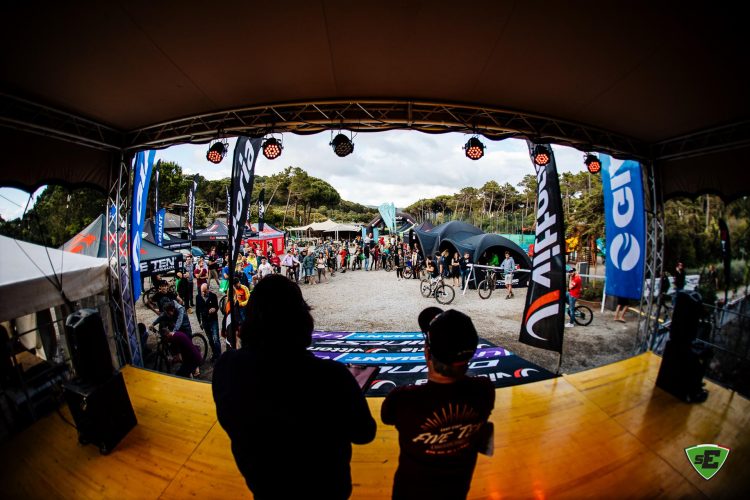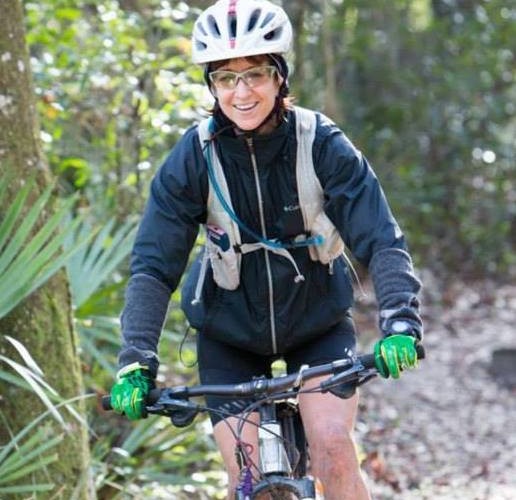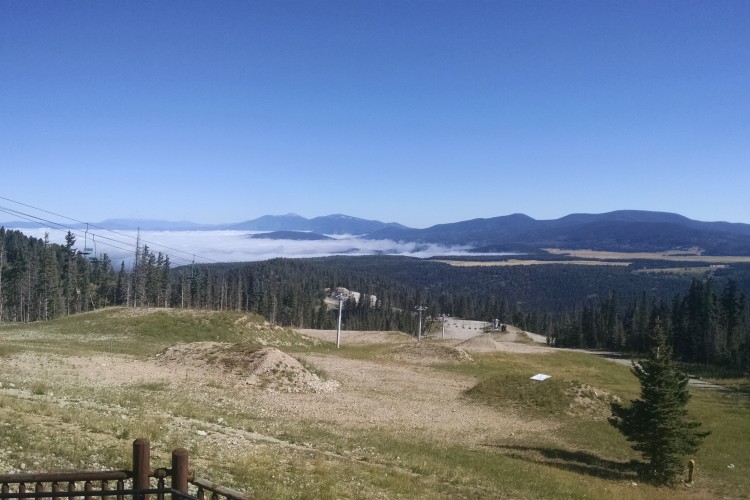
Across nearly every culture and subculture people are finally talking directly about race, and about whether their corner of the world is welcoming to folks with different backgrounds and experiences. Many of us in the mountain bike industry and broader cycling culture are ready to ask the hard questions around race and gender in our sport. Yes, these discussions and changes undoubtedly should have taken place long ago, and folks are prepared to listen, learn, and make important changes.
The resulting conversations need to include everyone, from community members, people looking in from the outside, industry leaders, advocacy groups, everyday riders, and many others. I recently had a chat with IMBA Europe General Manager Mark Torsius about what the MTB advocacy and education association can do to promote a more welcoming trail environment, and he had several candid insights to share.
The following is not meant to be a direct action plan, nor a precise set of answers around everything IMBA EU wants to focus on. This is the very beginning of a much longer learning process that IMBA EU and other powerful players in the industry are eager to engage in.
What is IMBA EU’s action plan for encouraging and welcoming a more diverse range of riders and industry members to the European MTB community?
I’d be honest about this, we don’t have a real action plan in place right now. Partly because of the limited capacity we have, partly because we’ve been advocating for easy access for everybody. We have realized that our board is not an accurate reflection of society and even of the MTB community with white men only. So we need to be proactive and work towards a more diverse board.
Does IMBA EU have a philosophy or mission statement that focuses on making mountain biking more welcoming for underrepresented groups?
We have changed our mission and vision slightly during our last General Assembly because we believe we should address more of today’s societal challenges. This was at the end of March, before the protests started in the US. In the new mission, we see a role for mountain biking to improve people’s lives, advocate for easy access, and growing the diversity of cycling and the quality of mountain bike communities. At the end of this year, we’re planning another General Assembly to adopt a new strategic plan. That new strategy should provide more guidance on how to work on diversity or underrepresented groups.
Are there IMBA projects currently in the works to welcome more women and more people of color to the sport of mountain biking in Europe?
IMBA US is doing this a bit better than us when it comes to women. For instance with International Women’s MTB Day, the first Saturday of May. We’re about to join that initiative but skipped this year due to the corona crisis. Better well prepared than half baked. The initiative highlights women already involved in the sport who can be good ambassadors. Women’s skills training is becoming more common as well.
But I haven’t witnessed a specific project in Europe to get more people of color into mountain biking. I wouldn’t start that from scratch to be honest. If there are specific needs or barriers for specific underrepresented groups, let’s learn about that first. I believe people need to get the feeling that they are welcome, that a certain community embraces diversity. Setting up specific projects for people of color feels a bit strange as well, that’s not really bonding or bridging is it? This whole process needs time as well. We are still a relatively young sport and a lot of people started with mountain biking as their 2nd, 3rd or 4th ‘sport career,’ meaning they practiced more traditional European sports when they were young and switched to mountain biking at a later age. Football [soccer] was completely white in the beginning and it took quite some time to reach the levels of diversity it has right now.
What are some organizations or groups that IMBA EU would like to partner with for future diversity engagement?
As a European umbrella, we monitor EU funding schemes. Funding for sport-related projects is limited but inclusion and diversity are topics that have been addressed by the European Commission. I think you will need a strong consortium of project partners including universities or other educational institutions that have the right knowledge and experience in the field of inclusion, (gender) diversity and ethnicity.
This is not an easy topic and I believe there’s more research needed to better understand why people of color are underrepresented. What are the main barriers, what are the kind of sports they prefer, what is considered as a safe sporting environment? I’m living in the Netherlands and here, everybody cycles to go to school, work, to do groceries. There are no exceptions based on gender or ethnicity. But as we enter the sport / recreation dimension of cycling and mountain biking, we’ve lost most of this diversity we see on a daily basis on our streets. So there’s still a lot to learn. And this is just the Netherlands, the situation can be completely different in other European countries.
What athletes, industry members, or organization leaders can IMBA EU support as role models for underrepresented groups of riders?
Good questions, and the fact that I don’t have a direct answer says it all. We don’t have the right people on our radar that could be that role model. I’m glad to see a number of industry partners like SRAM, Specialized and currently, Endura showed leadership here and pledged to work on this. So it would be obvious to team up with them because they won’t have all the answers as well. We’re open to suggestions and like to hear more about potential role models or good practices.
It’s important that the EU mountain bike industry starts working together on these big themes that are important for all of us. This is not about competition, it’s in the general interest of the industry and mountain biking to make this a joint effort.
How is IMBA EU working to lower the economic barriers to mountain biking?
There are only a few things we can try to influence but one thing is to bring mountain biking closer to the people and make it more accessible. We think it’s important that our sport becomes more visible in urban areas as well. The best examples are the companies that have been building pump tracks all over Europe. That helps enormously to reach out to a younger and more diverse target group, both in terms of gender and ethnicity. It creates a bit of a new subculture, something we’ve seen happening in other younger urban lifestyle sports like skateboarding. Our biggest challenge here is to keep this new generation engaged. This young generation has way more diversity in it than our current mountain bike community so I have high hopes that we are going to witness a whole different MTB community in about 10 years.
Better connections and green corridors from urban to peri-urban or rural is another logical next step that will help to lower the barrier to mountain biking as well. As far as the economic barrier of buying a bike, the bike industry is constantly improving the quality of entry, low budget mountain bikes so that should now be the biggest barrier. It might still be a bit more expensive than the annual contribution of a football club but you’re not only investing in a piece of sports equipment, you can use it for your daily commute as well.
This young generation has way more diversity in it than our current mountain bike community so I have high hopes that we are going to witness a whole different MTB community in about 10 years.
What are some steps that the European bike industry could take to make the sport more inclusive and welcoming?
The bike industry is the predominant factor when it comes to creating the image of our sport. In their ads, videos, you name it. With their communication power, they could work on creating this more inclusive image as a start. In the beginning, that won’t reflect the real situation but it’s a start. We’ve seen more women coming into our sport in the last decade and I think this is partly due to the increased interest of the bike industry and showing more women in their advertising campaigns. It’s not perfect because there’s still a tendency of showing picture-perfect people only. But it’s important to work on a critical mass, that gender and ethnicity are represented at a level that people start to identify with that community. That won’t happen if only 1% of the mountain bike community is women or black, of whatever background you have. In that situation, people might participate for a while but are quite likely to drop out again. But as stated earlier, start young, with a new generation, and embrace diversity.

We would like to thank Mark for taking the time to answer these questions, and for getting the conversation started for IMBA EU. Look for more reports on the association’s action plan later this season.



















